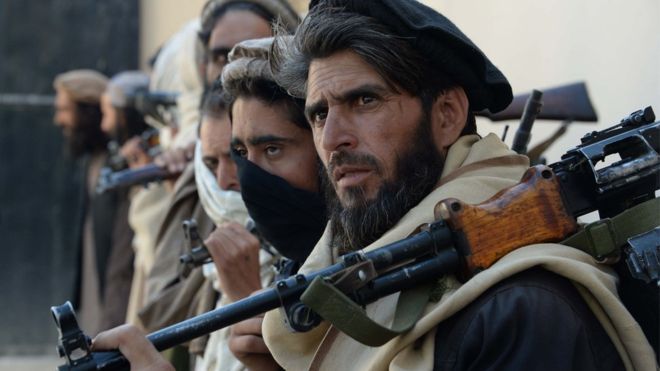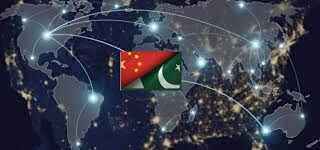
Islamabad outmaneuvers India from Afghan endgame
US, China, Russia welcome Pakistan as key Afghan peace partner
ISLAMABAD – Away from the media gaze, the special representatives of the US, China, Russia and Pakistan last week went into a huddle in Beijing with a one-point agenda on the table: The Afghan end-game.
Another important event almost the same time also remained off the media screens. Pakistan hosted around 28 top Afghan politicians from eighteen political parties and ethnic groups who are traditionally ranked as critics of Pakistan’s Afghan policy.
The place for the two-day conclave was also picked on purpose: the mountainous but picturesque Bhuran, Murree, where Pakistan hosted top Afghan Taliban leaders some years back as part of the track-II talks.
Afghan Taliban leaders, including its chief negotiator Mullah Abdul Ghani Brader, were also hosted by China at Beijing last month. It followed with another round of talks at Doha following which U.S. special envoy Zalmay Khalilzad described the latest round of U.S.-Taliban peace talks as the “most productive ever”.
This all suggests that the Afghan peace process is entering its final but critical stage.
The four-party dialogue held in Beijing on July 10 & 11, 2019, acknowledged Islamabad as a credible partner to help facilitate the peace process in war-torn Afghanistan as efforts by the four partners discussed US exit from Afghanistan, a power-sharing formula between various factions in Afghanistan and the developmental process to be launched following the US troops withdrawal. The four-party dialogue established another fact: India is no more a player in Afghan endgame.
The meeting, third of its kind, was actually a part of a trilateral mechanism on Afghanistan with China, Russia and United States as members. However, Pakistan being the key factor in Afghan peace dialogue was specially invited to the meeting for the first time.
“China, Russia, and the United States welcomed Pakistan joining the consultation and believe that Pakistan can play an important role in facilitating peace in Afghanistan,” says the joint communiqué issued by the US state department following the talks.
In the regional scheme of things, the development signifies a fact that Pakistan has convinced the three world powers, US, China and Russia that only Islamabad can deliver desired goods in Afghanistan and that keeping India out would mean durable peace in Afghanistan.
According to the joint declaration, Pakistan appreciated the constructive efforts by the China-Russia-US trilateral consultation on the Afghan peace process.
“The four sides exchanged views on the current situation and joint efforts for realizing a political settlement to advance peace, stability, and prosperity of Afghanistan and the region,” said the statement.
The statement referred to the meetings regarding the Afghan peace process held in Moscow and Doha.
“The four sides emphasized the importance of the trilateral consensus on the Afghan peace process reached in Moscow on April 25, 2019. All sides welcomed recent positive progress as the crucial parties concerned have advanced their talks and increased contacts with each other. All sides also welcomed intra-Afghan meetings held in Moscow and Doha,” said the statement.
The four sides called for relevant parties to grasp the opportunity for peace and immediately start intra-Afghan negotiations between the Taliban, Afghan government, and other Afghans. The statement reflected the heavy influence of Pakistan on talks as the term coined by Islamabad of an ‘Afghan-led and Afghan-owned’ peace process was visible.
“They re-affirmed negotiations should be “Afghan-led and Afghan-owned” and further agreed that these negotiations should produce a peace framework as soon as possible,” said the statement.
The meeting urged the Afghan Taliban that framework should guarantee the orderly and responsible transition of the security situation and detail an agreement on a future inclusive political arrangement acceptable to all Afghans.
The four sides encouraged all parties including the Taliban to take steps to reduce violence leading to a comprehensive and permanent ceasefire that starts with intra-Afghan negotiations.
The US Special Representative Zalmay Khalilzad tweeted from Beijing on Friday that the four countries agreed that “intra-Afghan negotiations between the Taliban, the Afghan government, and other Afghans should start immediately; that these negotiations should produce a peace framework as soon as possible; and detail a future inclusive political arrangement acceptable to all Afghans.”
“We also agreed that violence needs to slow now and a comprehensive and permanent ceasefire should start with intra-Afghan negotiations. We agreed we will expand and ask more international partners to join with the start of negotiations. Very positive,” wrote Khalilzad.
The development suggests that the US, China and Russia have left behind their differences, at least for the time being, and have come together to seek an end to the Afghan war.
This comes amid some respite in souring trade relations between US and China which reflect the complexities involved in diplomacy and foreign policy.
Another major notable factor is the change in mindset of Pakistan’s policymakers who not only have encouraged Afghan Taliban to take the peace talks further, which the Taliban had been reluctant to do over the past few years; Islamabad has also bridged gaps with Kabul administration led by President Ashraf Ghani – a step Islamabad looked reluctant to take in the past.
The ice-melting process between Islamabad and Kabul could be gauged by the fact that Dr Ghani recently visited Islamabad and held meetings with Prime Minister Imran Khan and other key officials. Dr Ghani spoke very positive about Pakistan throughout his trip which speaks volumes about the successful visit.
But prior to Dr Ghani’s visit, Pakistan hosted key Afghan politicians, traditionally believed to be critics of Pakistan’s Afghan policy. Interestingly, majority of Afghan leaders are non-Pashto speaking warlords and are considered critics of Islamabad’s Afghan policy.
The list included former National Security Advisor and a staunch critic of Pakistan, Hanif Atmar; Ahmed Zia Masood, the brother of slain Afghan commander Ahmed Shah Masood; and former prime minister Gulbadin Hekmatyar.
Chief of High Peace Council Mohammad Karim Khalili, Jamiat-e-Islami leader Ustad Atta Mohammad Noor, Hizbe Wahdat leader Mohammad Mohaqiq, lawmaker Fouzia Koofi, Pir Hamid Gailani and others were also part of the delegation. Some of these leaders are also candidates in the upcoming elections due in September for top Afghan job. However, my analysis is that these elections are not going to be held as peace talks are likely to succeed and an interim government is likely to take shape.
Afghan leaders also quietly met with Prime Minister Imran Khan and other officials and spoke very positively about Pakistan.
After a meeting with Premier Khan, Hanif Atmar visibly looked impressed by Khan’s vision.
“I am deeply touched by the vision of Prime Minister Imran Khan. Frankly, I am deeply impressed by the leadership approach of the new prime minister. We hope that in future, the Afghan peace process will be successful,” whispered Atmar in my ear.
Few days later, Dr Ghani sent his chief advisor on National Security Council, Sarwar Ahmedzai, to Islamabad and he has quietly met with many officials since then.
These visits suggest that Islamabad is silently expanding its outreach to non-Pashtun politicians in an apparent bid to form a broad-based national dispensation in Afghanistan. Since most of the rural areas of Afghanistan are literally run by Afghan Taliban, Islamabad is still trying to expand its influence in Persian, Tajik, Uzbek and other ethnic groups in Afghanistan so as a representative interim set-up could be formed after US pullout.
But will the Taliban agree to a broad-based government is a million dollar question. However, one must remember that there must be a reason for Islamabad to suddenly activate those channels which it had abandoned decades back.
(The article was originally published by CGTN)








